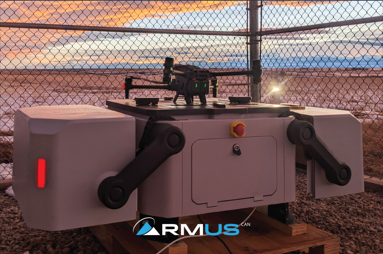
As technology continues to advance, drones are becoming increasingly popular and have found their way into various industries, such as agriculture, delivery, and surveillance. With this growth in usage comes the need to build trust and ensure consumer confidence in the technology, particularly in autonomous drone technology.
Autonomous drones, also known as unmanned aerial vehicles (UAVs), are capable of flying and operating without human intervention. These autonomous drone use various sensors, cameras, and software to navigate and carry out tasks, such as aerial inspections, mapping, and delivery. However, the idea of machines flying without human intervention can be daunting and may raise concerns about safety and privacy.
To ensure consumer confidence in autonomous drone technology, several measures need to be taken. The following are some of the ways in which trust can be built:
-
Regulations and Standards: The first step in building trust is to establish clear regulations and standards for autonomous drone technology based on drone autonomoy. Governments, industry leaders, and regulatory bodies must work together to create guidelines that ensure the safe and ethical use of drones. These guidelines must address issues such as privacy, security, and the reliability of the technology.
-
Transparency: Transparency is crucial in building trust. Drone manufacturers and operators must be open and honest about the capabilities and limitations of their technology. They must also be transparent about how they collect and use data, and who has access to it.
-
Education and Awareness: Education and awareness are key to building trust in autonomous drone technology. Consumers must be educated on how the technology works, its benefits, and its potential risks. This will help consumers make informed decisions about their use of drones and reduce fear and mistrust.
-
Safety Features: Autonomous drone technology must have safety features that reduce the risk of accidents and damage. These features may include collision avoidance systems, geofencing, and emergency landing capabilities.
-
Data Security: The security of data collected by autonomous drones is a major concern for consumers. Drone manufacturers and operators must implement robust data security measures to protect sensitive information.
-
Collaboration: Collaboration between drone manufacturers, operators, and stakeholders is critical in building trust. This collaboration can include working together on safety standards, addressing privacy concerns, and promoting the benefits of autonomous drone technology.
-
Accountability: Drone manufacturers and operators must be held accountable for their actions. This can be achieved through legal frameworks and enforcement mechanisms that ensure compliance with regulations and standards.
In conclusion, autonomous drone technology has the potential to revolutionize various industries, but building trust and ensuring consumer confidence is essential for its widespread adoption. By implementing regulations and standards, being transparent, educating consumers, implementing safety features, ensuring data security, promoting collaboration, and holding manufacturers and operators accountable, we can build trust and make the most of this promising technology.